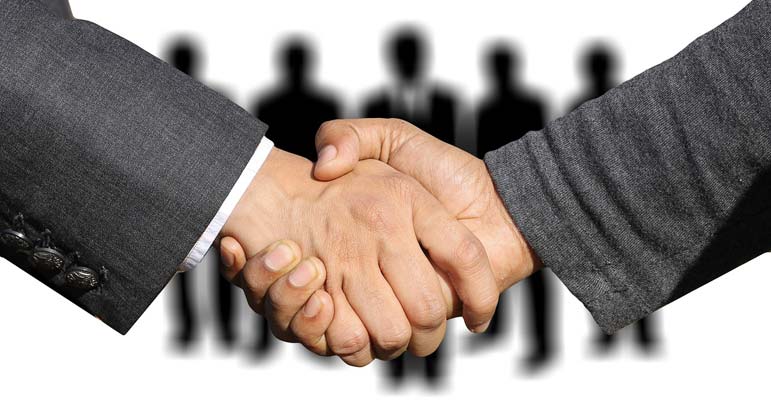
But, some argue, we better think twice before we offer a celebratory handshake.
On Memorial Day, Pennsylvania began allowing restaurants, stores, sporting events, schools and other organizations to once again operate at 100% capacity.
However, some are telling us it would be best if certain activities, such as our greeting rituals, never go back to normal.
In April 2020, Dr. Anthony Fauci, director of the National Institute of Allergy and Infectious Diseases, said that as our country opens back up, some behaviors, such as the handshake, must change.
"When you gradually come back, you don't jump into it with both feet," Fauci told podcast host Kate Linebaugh on The Journal. "You say, what are the things you could still do and still approach normal? One of them is absolute compulsive hand-washing. The other is you don't ever shake anybody's hands."
Fauci explained that an end to the handshake would prevent the spread of germs and "probably would decrease instances of influenza dramatically in this country."
From a purely antiseptic standpoint, Fauci is correct.
According to a report from the Centers for Disease Control and Prevention , Americans aren't very good at killing germs by properly washing their hands with hot soap and water.
But if we give up our handshake ritual entirely, what else might we be giving up?
Paleoanthropologist Ella Al-Shamahi, author of "The Handshake: A Gripping History," tells MSN that the handshake is "rooted in our DNA."
"The handshake is one of the gold standards of human connection and that is why we see it so much all over the world," she says.
Before COVID, business magazines stressed the importance of a proper handshake to make a good impression on others.
A 2011 Huffington Post article titled "The Power of a Handshake: How Touch Sustains Personal and Business Relationships" explains how the power of touch sustains personal and business relationships.
It cites University of Iowa research that found that the handshake is rooted "in the age old need to connect with other people."
The handshake is "a first step toward affiliation: the building of a bond with another person."
It is "the foundation of trade with others."
The article further explains that our feelings about someone else, and the pleasure we feel in cooperating, all begin with a handshake.
That surely has been my experience.
When someone greets me with a cold, clammy handshake and a weak grip, my impression of that person is not positive.
When someone's grip is too tight and he or she looks me in the eyes too eagerly, my impression is that he or she is trying too hard and lacks confidence.
Then there is the individual whose grip is just firm enough — whose eye contact is perfectly natural and confident — who begins building in me an immediate sense of well-being and trust.
Quite simply, despite the risks, the handshake has long been a powerful form of human communication.
Ironically, as the world opens back up — and the handshake ritual is discouraged — National Handshake Day is just three weeks away.
Celebrated the fourth Thursday of every June since 2005, it pays homage to the multi-generational ritual of using the handshake to reach out and welcome others and offer a gesture of friendship, peace and forgiveness.
Goodness knows we could use more friendship, peace and forgiveness in these divisive times.
How much harder will it be to cultivate all three in a world in which the handshake is no longer welcome?
(COMMENT, BELOW)


 Contact The Editor
Contact The Editor
 Articles By This Author
Articles By This Author